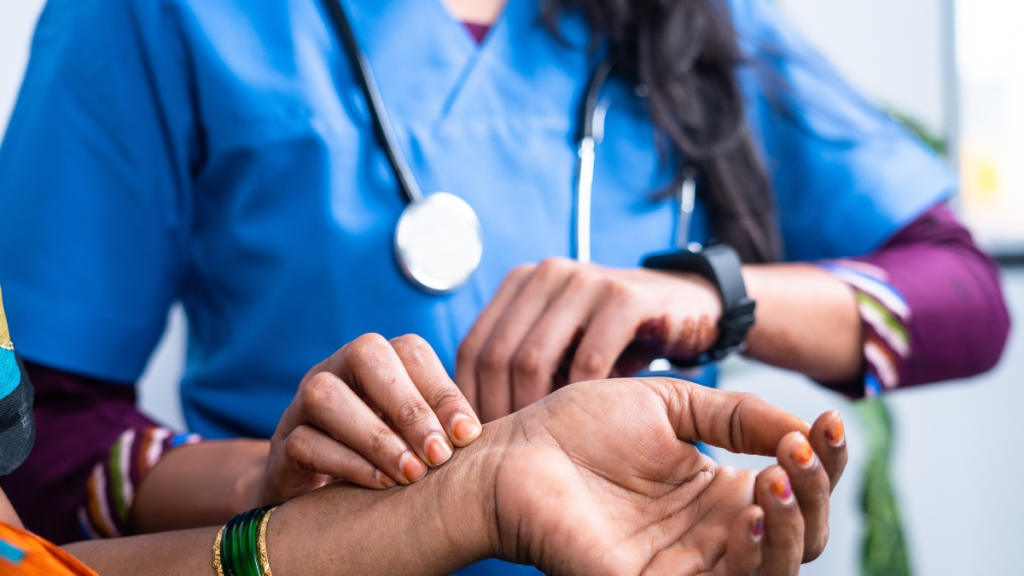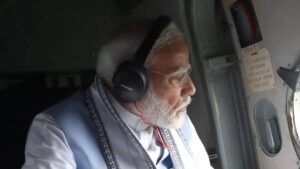Indians More Willing to Spend on Health Post-Covid; Demand for Wellness Packages Up: Metropolis Healthcare CEO

Indians are driving a surge in demand for health and wellness check-ups, reflecting an increase in awareness of their well-being post-pandemic, a top official leading India’s second-largest diagnostic chain Metropolis Healthcare told News18.
Surendran Chemmenkotil, chief executive officer at Metropolis Healthcare, told News18 in an exclusive conversation that there is a significant increase in the demand for preventive care health packages post-Covid-19. “Our share in this market has grown from just 5% before the pandemic to 16% today.”
He said one of the aftereffects of Covid-19 is that Indian consumers have become increasingly concerned about their health. “They want to keep their health as a priority and they are willing to spend money to have the right health checkups”.
The average price for wellness packages stands at around Rs 2,500 to Rs 3,000 and the company claims to be growing more than 20% year-on-year in this segment. “In the next few years, this will become more sizeable.”
Dr Lal Path Labs is India’s largest diagnostic service provider followed by Metropolis Healthcare and Vijaya Diagnostics when it comes to market capitalisation.
Entry of Health Tech Players & Price Correction
Bombay Stock Exchange (BSE)-listed firm Metropolis has seen a lot of health-tech players coming into the industry and offering “very deeply discounted pricing”, the CEO said.
According to Chemmenkotil, who was a managing director and CEO for telecom giant Airtel in Nigeria before joining Metropolis, “such entities were putting serious pressure on the industry when it came to the pricing.”
“All these players were offering deeply discounted prices, online services, and home visits. During Covid, they saw the revenues on the high and the EBITDA margins (earnings before interest, taxes, depreciation, and amortization) were good. So everyone thought this is a bright place and the entry barriers are almost nothing.”
“Not just health tech, several hospitals plunged into the diagnostic industry and then, they wanted to establish their own diagnostic chains.”
Further, he said, a lot of pharmaceutical companies also came into the diagnostic industry. (While he refused to name firms, some examples include Mankind Pharma’s Pathkind labs and Lupin’s Lupin Diagnostics).
“The diagnostics industry was flooded with competition. Everybody was playing with the price,” Chemmenkotil said.
However, he said, by now health-tech players have realised that they can only attract wellness customers. “When someone fell ill, they don’t rely on various offline or online offers. Instead they consult their doctor and visit the recommended diagnostic centres. This is where Metropolis truly excels.”
He said that now these players have realised that the prices they were offering were not sustainable. “So last year, all the health-tech players took the price up by 50-60%.”
“They have increased the price by 50-60% because their investors started asking questions,” Chemmenkotil claimed, adding that Metropolis has also revised its prices after a gap of two years.
Expansion Beyond Tier III on Cards
With the target of bringing 24 new labs, 500 more collection centres and entry in 600 more towns, the chain aims to be present in at least the top thousand towns of India in the next two years. “This is largely tier two, tier three, and sometimes even beyond tier three.”
While the chain is already present in the majority of tier 1 cities, it aims to expand further in tier 2 and majorly in tier three. “And then, we may go to much smaller tier four, at least covering up to all district headquarters. India has got some 650-odd districts which are on our target.”
The company is also hunting aggressively for merger and acquisition opportunities and is already in talks at multiple locations.
Future Lies in Specialty Testing & Artificial Intelligence
The company aims to strengthen its specialty portfolio, including genetics, molecular biology and next-generation sequencing technology. “The next-generation sequencing can happen on every segment, whether it is in oncology or neurology, nephrology,” the officer said, adding that the company is trying to further expand its specialty portfolio which is presently around 35% of the company’s revenue.
Also, the role of artificial intelligence in diagnosis is very important now, he said.
“AI can be used to predict the results much superior to what otherwise you could predict through human intervention. Even machine learning can pick up a lot of clinical notes and patient data to predict a disease ahead of time.”
Chemmenkotil said that “anybody who does not embrace AI will fall behind. We are committed to making the right set of investments for AI.” He predicted that in coming years, the industry will see the rise of “remote diagnostics”.
“Remote diagnosis is also going to be an important element in the days to come, even if you want to consult a doctor in the other part of the world and you can give the sample here (in an Indian city), your doctor will be able to access diagnostic reports easily.”



